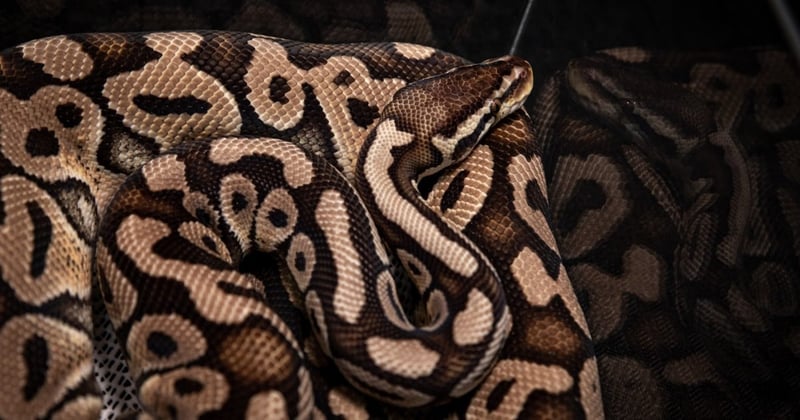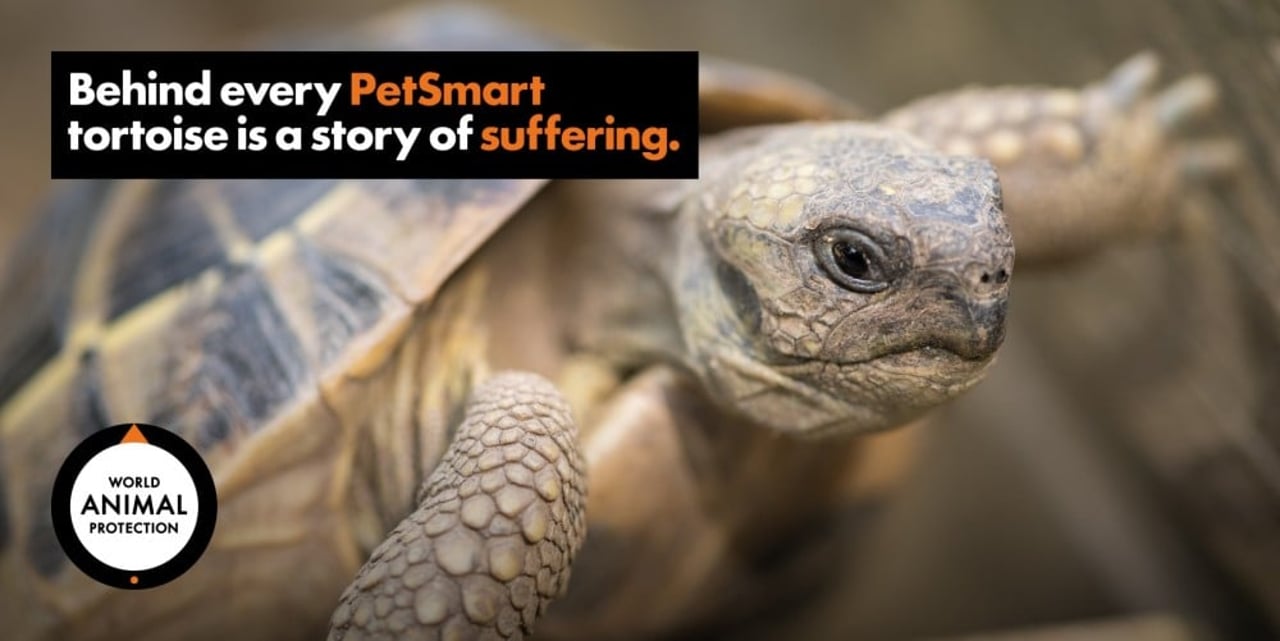
PetSmart might not sell many wild-caught animals but selling species who are under pressure of survival in the wild is equally problematic.
The world is in the midst of a biodiversity crisis. It is estimated that more than one million species will go extinct in the coming decade if individuals, companies, and governments continue operating the way they currently do. The trade in wild animals, which includes the exotic pet trade, is one of the main causes of decline in species population sizes in the wild.[i]
PetSmart continues to sell animals regardless of the biodiversity crisis
Many reptile and amphibian populations are under pressure in the wild, including Ball pythons, tortoises, and chameleons. All these species are listed by the Convention on International Trade in Endangered Species of Wild Fauna and Flora (CITES) to prevent further decline of their wild populations. Despite this international agreement, the decline of many wildlife populations continues.
Did you know?
- Ball pythons continue to be one of Africa’s most legally traded live animals.
- According to the International Union for Conservation of Nature (IUCN), the wildlife populations of the Eyelash crested geckos, most of the Testudo genus, and several of the South American Horned frog (aka Pacman frog) species are decreasing.
- The trade of Ball pythons, Bearded dragons, Leopard geckos, and Long-tailed lizards continues despite the unknown effect of the trade on their wild population because the status of those populations in the wild is unknown.
- Ball pythons, tortoises, Veiled chameleons, Bearded dragons, Leopard geckos, Long-tailed lizards, and South American Horned frogs are all sold in PetSmart stores. PetSmart also sells tarantula and false chameleon species, both are protected by CITES and therefore subject to trade restrictions.
Selling captive-bred animals is not the solution.
While captive breeding of animals has been suggested as a suitable alternative to protecting wild populations, evidence shows that captive breeding can be harmful to the sustainability of wildlife populations because:
- Captive breeding operations continue to supplement their captive breeding populations with wild-caught animals.[ii] For example, when breeding in captivity is not successful enough or to introduce new genetics into the captive breeding population.
- Captive breeding can increase the demand for animals and, therefore, continue to drive the need for wild-caught animals.[iii]
- Wild-caught animals can often be sold at a lower price than captive-bred animals because the cost of breeding and keeping a young reptile/amphibian alive at the first life stages is more expensive than capturing animals from the wild.
- The biodiversity crisis affects us all and is directly connected to other issues, including zoonotic disease spillover, habitat degradation, and animal suffering. It is time for PetSmart to end its participation in the wildlife trade and become part of the solution. This includes educating the public about the fact that exotic animals are not suitable as pets and animals should not be sold as commodities. This would help prevent animal suffering and biodiversity loss and align with the company’s position of adopting domesticated animals instead of selling them.
PetSmart customers agree:
- 92% of customers are concerned about reptiles and amphibians being captured from the wild to be sold as pets;
- 91% of customers are concerned that reptiles and amphibians are sold without checking the owner’s suitability;
- 90% of customers believe that reptiles and amphibians should not be kept as pets because they suffer in captivity. [iv]
The exotic pet trade causes harm to animals, humans, and the environment. Companies such as PetSmart must take responsibility and stop supporting this cruel trade. Join our campaign and sign our petition urging PetSmart to stop the sale of reptiles and amphibians in its stores.
PetSmart: Please stop the unnecessary suffering of thousands of animals. Stop selling reptiles and amphibians in your store.
Sources
- [i] IPBES (2019): Global assessment report on biodiversity and ecosystem services of the Intergovernmental Science-Policy Platform on Biodiversity and Ecosystem Services. E. S. Brondizio, J. Settele, S. Díaz, and H. T. Ngo (editors). IPBES secretariat, Bonn, Germany.
- [ii] TRAFFIC (2012). Captive Bred, or Wild Taken? TRAFFIC International, Cambridge, UK
- [iii] Bulte EH, Damania R. An economic assessment of wildlife farming and conservation. Conservation Biology. 2005 Aug;19(4):1222-33.
- [iv] December 2020 Flood market research commissioned by World Animal Protection
